Should you really use premium petrol for your car?

Cars are one of the most valuable personal possessions in Singapore. Due to the high import duties and other taxes imposed on automobiles in the country, an average car can easily cost more than a S$100,000, while luxury cars can easily cost upwards of several hundred thousands of dollars. Given this, it's not surprising that some carowners feel compelled to only use premium petrol on their prized possessions. But, are high-octane grade fuel really worth the extra cost?
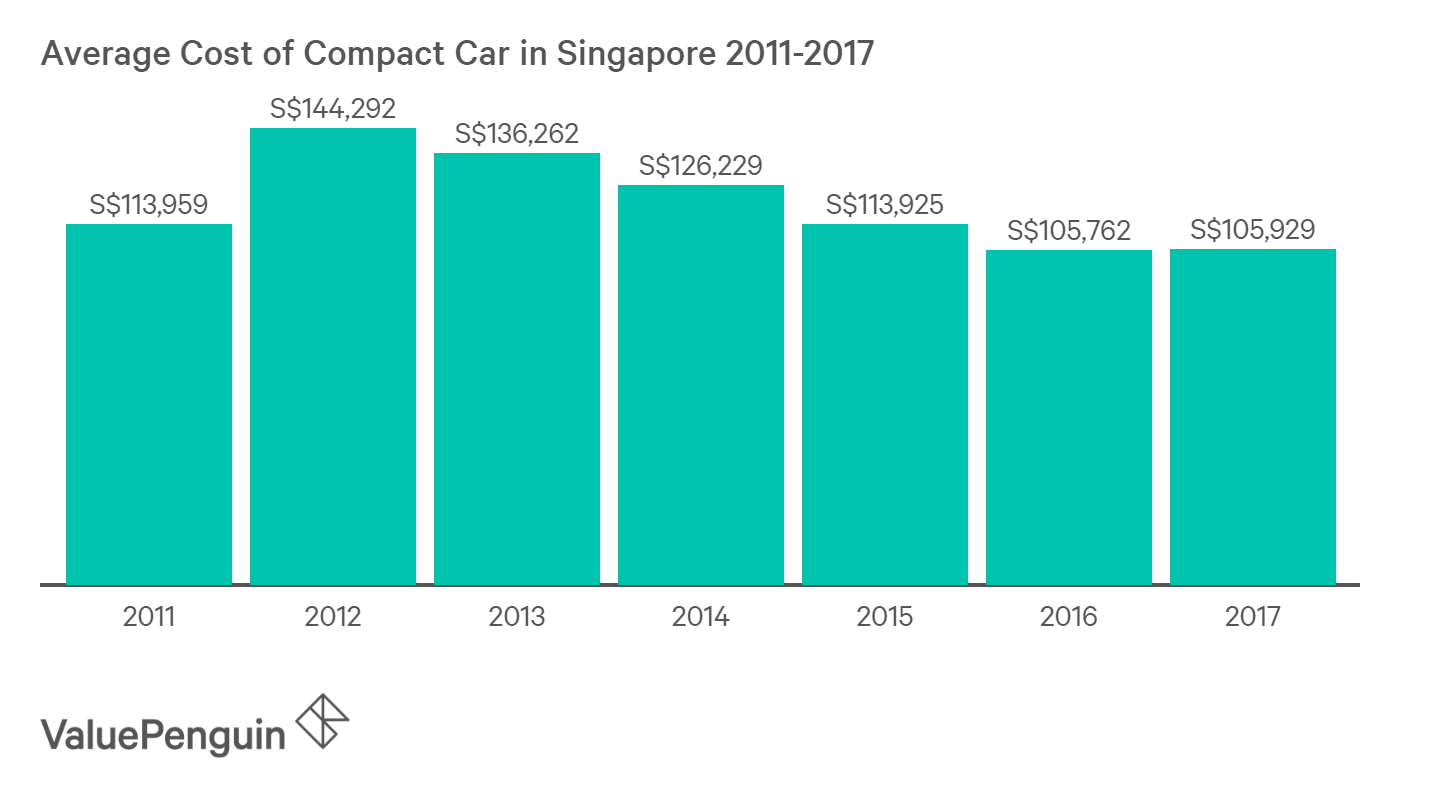
Only Engine Capacity Above 2,000 CC Are Worth Fueling with Premium Petrol
According to our calculation, only ultra-premium cars with engine capacity well in excess of 2,000 CC are worth the cost of using premium fuels. To come to this conclusion, we compared the extra cost of using premium fuel over for 10 years against the cost of engine repair or replacement, since the main benefit of using premium fuels is preventing engine damages, especially for high-end cars. For example, an owner of an average car like Toyota Corolla Altis (1,598 CC) will end up consuming about 10,000 litre of petrol over the course of 10 years while driving about 16,000km per year. Since 98 octane petrol costs about S$0.40 more than 95 octane, this translates to about S$4,000 in extra cost by opting for the premium fuel. However, more expensive cars with higher engine capacity and thus lower fuel efficiency could easily spend S$6,000 to S$8,000 more over 10 years by opting for 98 octane instead of 95 octane.
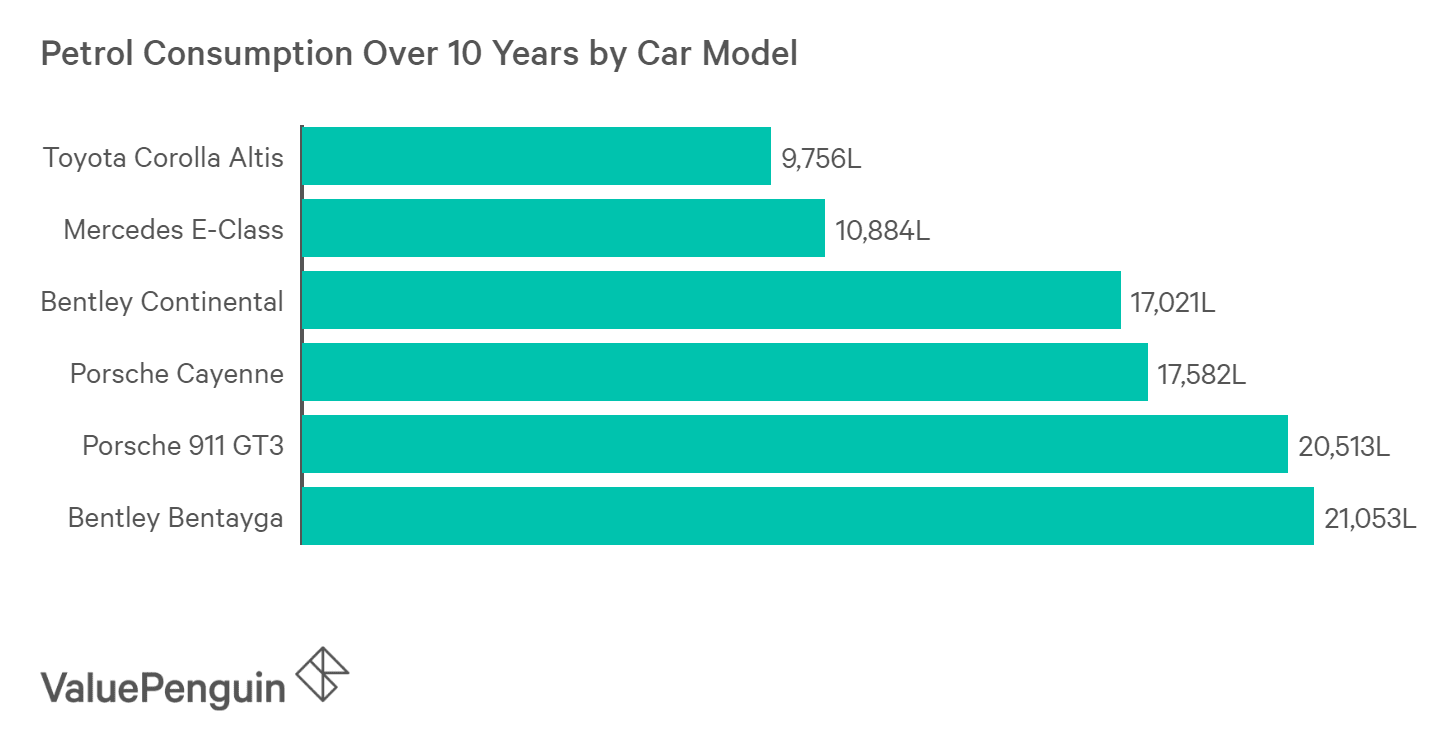
On the flipside, the cost to repair or replace these cars' engines also varies significantly by their engine capacity. For example, an average engine could cost about S$2,000 to S$3,000 to replace. Therefore, one would save money by opting for lower grade fuel and eventually replacing his engine completely even in the worst case scenario. In contrast, a Porsche's engine (3,000 CC to 4,000 CC) could easily cost S$10,000 or more to replace and has higher likelihood of being damaged by lower grade fuel than the average car's engine. In this case, spending the extra S$6,000 to S$8,000 on fuel over 10 years could actually be a worthwhile investment.
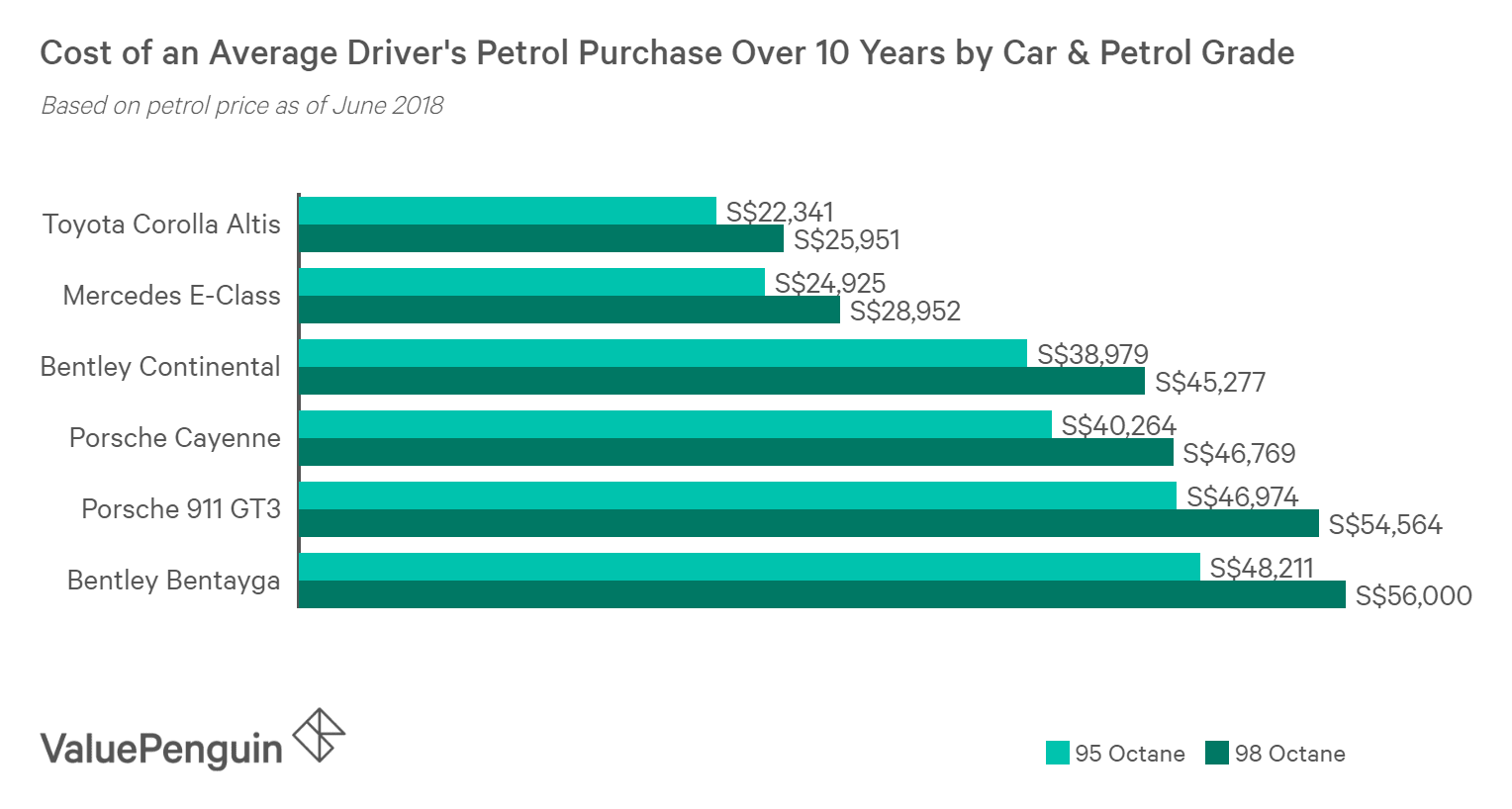
How Many Cars in Singapore Really Need High Octane Petrol?
If only cars with engine capacity of 2,000 CC or higher should be using petrol premium, then only about 16 per cent of the cars in Singapore should be using 98 octane petrol. Still, the number of cars that require premium petrol has also increased significantly over the last few decades. For example, in 2017, there were 97,687 private cars in Singapore with engine capacity of above 2,001 CC, which represented about 16 per cent of the car population. In 1997, this number was much lower at 29,098 vehicles, representing 8 per cent of the car population.
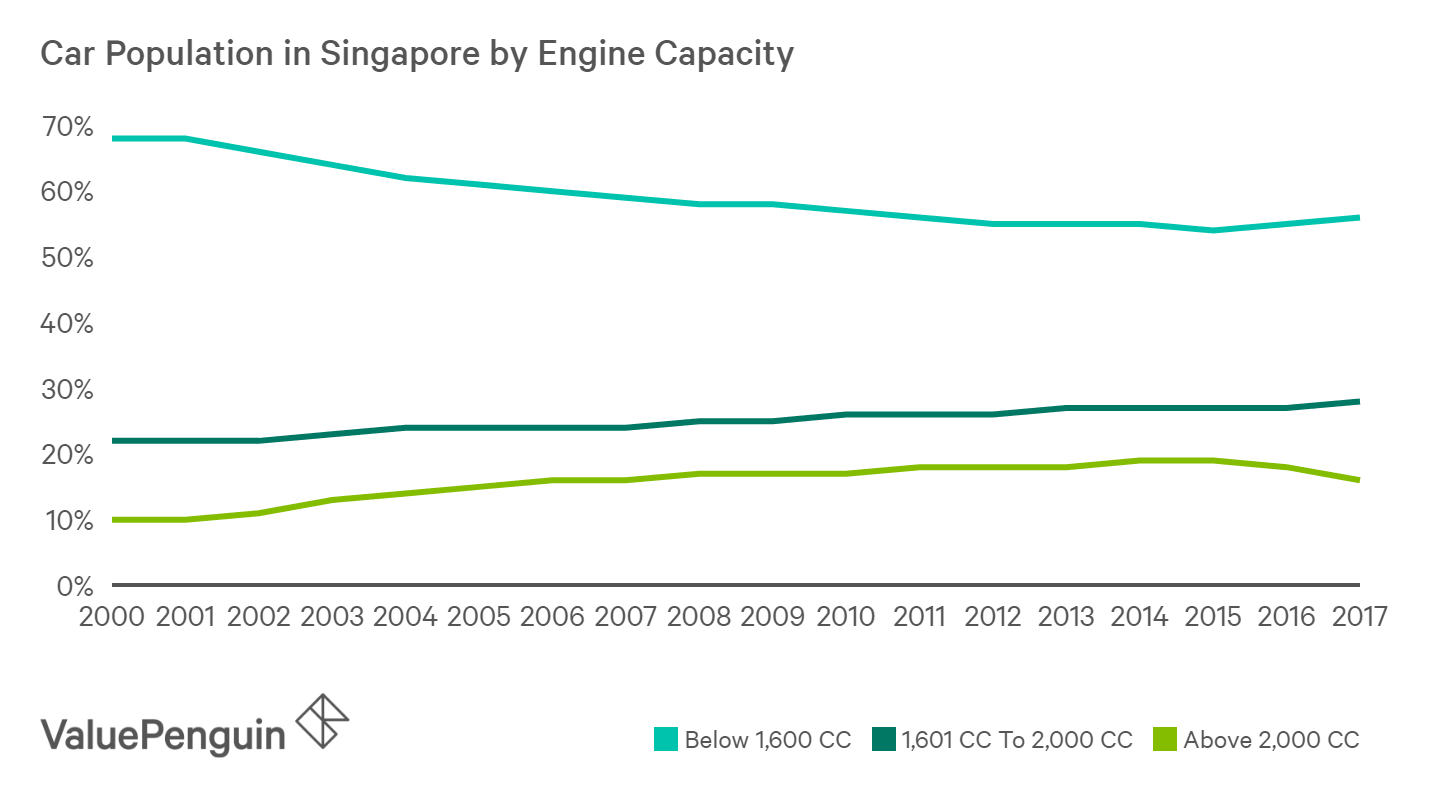
However, more recently, Singapore as a country has been purchasing more economy vehicles than in the past. For example, cars with high engine capacity used to account for 18 per cent of car population even in 2016, and their number has actually declined for 3 years in a row from 114,794 in 2014 to 97,687 in 2017. Meanwhile, the number of cars with engine capacity of 2,000 CC or below has been steadily increasing from 501,717 in 2014 to 514,569 in 2017.
How to Save on Petrol in Singapore
If you are driving a vehicle with an engine capacity of less than 2,000 CC, you can benefit by using an octane 95 to fuel your tank. Judging from the fact that 25 per cent of petrol sale in Singapore is 98 octane and these cars typically consume 2x more fuel than other cars, it seems that most drivers are already making the right decision around which fuel to use for their cars.
However, there are still many ways that drivers can further reduce their petrol cost. For example, there are many petrol credit cards in Singapore that provide 15 per cent to 25 per cent discounts on fuel purchase in the country.
Furthermore, driving more safely is also known to be an effective way of reducing not only your petrol consumption.
For instance, fuel consumption is lowest when you are cruising at a relatively constant speed of around 45km/hour and 75km/hour, while driving quickly, resorting to sudden braking and frequently changing your speed can decrease the gas mileage by around 20-30 per cent.
If erratic driving results in 20 per cent more fuel usage, an average driver in Singapore (16,700 km/year) could save S$500 or more in petrol every year by driving more smoothly and at the proper speed limits.
This also has an added benefit of reducing your car insurance premium by earning you No Claims Discounts and other perks, especially if your insurer provides data-driven premiums based on your driving habits.
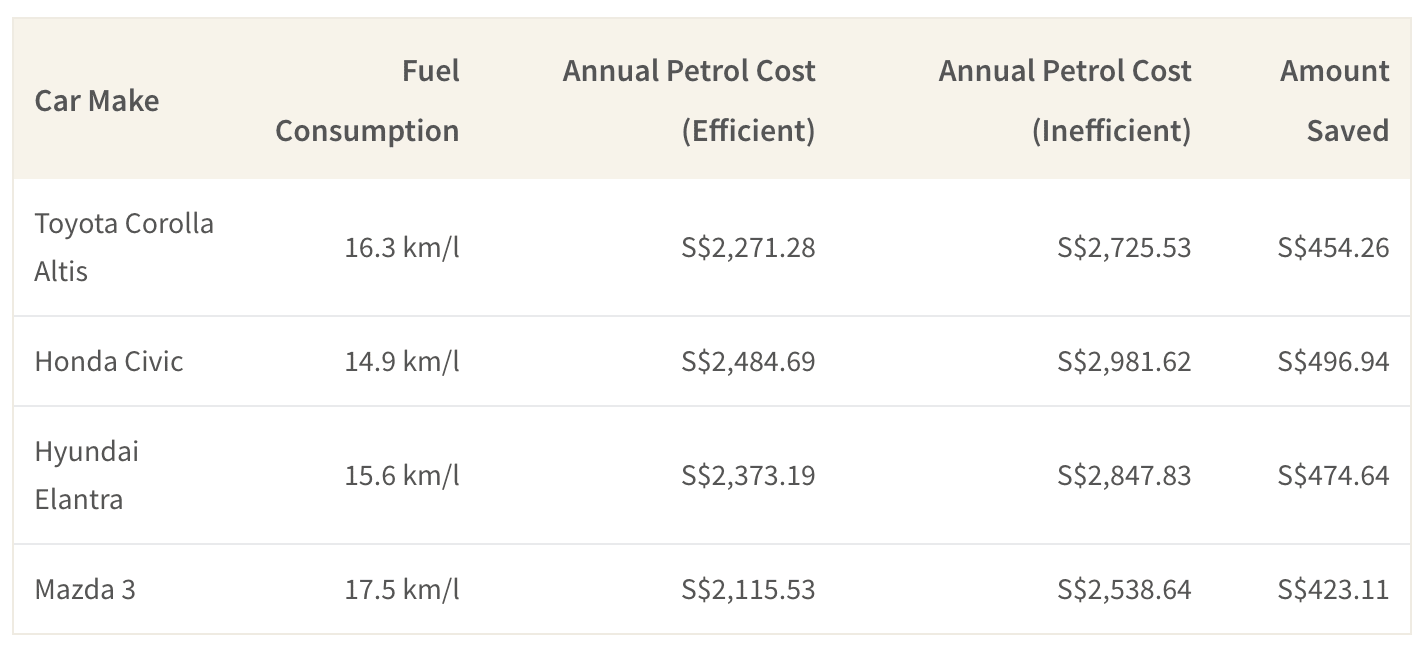
This article was first published in ValuePenguin.